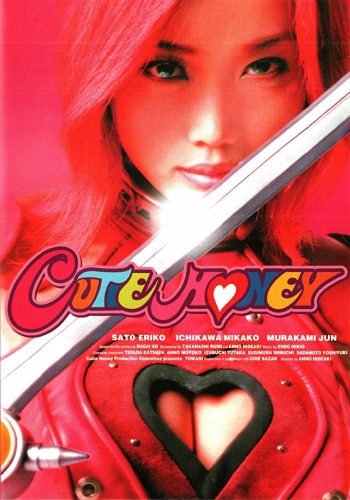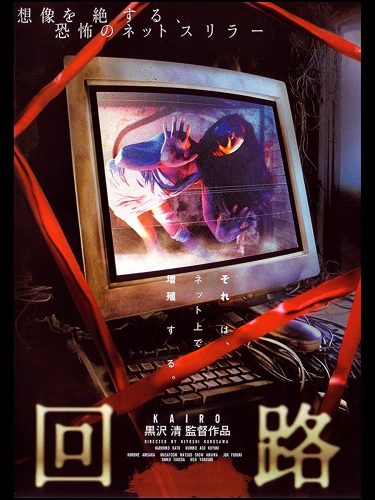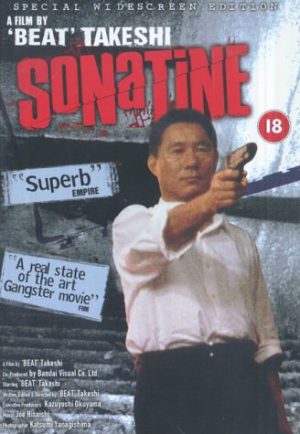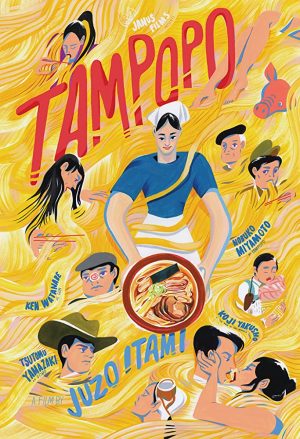
All great movies need a sequel, right? Well, maybe not, but we’re here again with some more classic Japanese films in Part 2 of our guide which, along with its companion piece, serves as an introduction to Japanese cinema with a special emphasis on appeal to anime fans. We’ve got a quadruple feature ready for you so let’s get to it, action!
Pulse (2001) aka Kairo - A Techno-Horror Exploration of Loneliness

Out of all the film genres, Japanese horror is arguably the one that’s found the most success outside of Japan in modern times, particularly with titles like Ring and Ju-On: The Grudge which inspired American remakes and sequels. Pulse is of that same distinction and shares some common ground with Ring; in particular with its horrors inhabiting computers and the internet instead of the Ring’s videotapes. However, Pulse is in other ways not conventional, even among J-horror. Without spoiling too much, Pulse follows two parallel storylines involving mysterious suicides and disappearances related to disturbing images and videos of ghostly figures alone in dark rooms that begin showing up on people's computers, causing them to lose connection with reality and disappear themselves.
Truth be told, Pulse is actually quite an original film and relies a lot more on the eerie feeling of dread it creates rather than trope-y effects, jump scares, gore, etc. Like the majority of horror anime, it’s more psychological and is probably best compared to fellow cult hit Serial Experiments Lain which also shares common themes of disconnection amid techno-horror. If you’re looking for a unique Japanese take on the genre and don’t mind a slow buildup that focuses on creating a creepy atmosphere more than anything else, Kurosawa Kiyoshi’s Pulse is definitely worth checking out.
Cutie Honey (2004) - An Outrageously Anime-like Sci-fi Comedy Adventure

Very much changing gears we have something of a tokusatsu classic, Cutie Honey! Based on Nagai Go’s iconic 1970s manga and anime series of the same name, Cutie Honey is an unconventional magical girl story following Kisaragi Honey, an android with the ability to transform into a variety of different forms, including the titular, sword-wielding superhero Cutie Honey. After her father, Dr. Kisaragi, was killed by the criminal organization Panther Claw, Honey vows to bring them to justice but is somewhat hampered by her own ditziness and hyperactivity. Did we mention that this film was directed by the legendary Anno Hideaki?
If Evangelion came from a depressed Anno, we can only imagine Cutie Honey is what comes from a happy one. Everything about this film is brilliantly over-the-top, campy, and exaggerated from its acting to the costumes and hilarious special effects. Lead actress Sato Eriko is a perfect choice, breathing life into the character and her many costumes (she is appropriately very cute!) and the film, in general, is just a ton of fun and embodies a lot of the same chaotically silly Gainax (and Trigger) style that fans of anime like Panty & Stocking and Inferno Cop will likely love. There are plenty of live-action remakes of anime out there, but few are as creative and enjoyable as Cutie Honey! This film itself was also later adapted into an OVA anime by Gainax and Toei called Re: Cutie Honey. Anno fans should also watch more of his live-action work like the amazing Shin Godzilla.
Sonatine (1993) - An Existential Deconstruction of Yakuza Films

Kitano “Beat” Takeshi has been one of Japan’s most recognizable celebrities for years as a comedian, perhaps most famous outside of Japan for the game show Takeshi's Castle which would later be adapted internationally and inspire copycats like American Ninja Warrior. He also transitioned to become a successful serious actor and director in the late 80s, where he is particularly associated with intense yakuza movies of which Sonatine is one of his earlier and most renowned examples. Sonatine follows Kitano as Murakawa, a stone-faced, middle-aged yakuza enforcer sent from Tokyo to Okinawa to allegedly break up a dispute between two other gangs. However, this seems to be a ruse and after their headquarters are bombed and they are attacked in a bar, he and his remaining men are forced to flee into hiding, taking refuge at a remote beach house to wait things out. There, he and his men engage in games and pranks to pass the time, but can their desperate attempts to have fun ease weary lives so desensitized to violence they barely feel anything anymore?
Despite their prominence in Japanese films, yakuza are relatively less represented in anime for one reason or another but while anime involving gangs like Durarara and outright yakuza characters like Nitta Yoshifumi from Hinamatsuri exist, Sonatine might actually be more likened to the proverbial anime beach episode than you might expect. As a deconstruction, it obviously includes many of the tropes of the gritty and violent subgenre of yakuza films but literally puts these characters on a beach where they try to entertain themselves and pushes them, and the viewer, into a more existential mood. In this way, Sonatine is like a philosophical beach episode (with some sporadic intense violence) that is somewhat reminiscent of Oshii Mamoru’s Jin-Roh: The Wolf Brigade and Ghost in the Shell, and even Evangelion to some extent. In any case, Sonatine remains a divisive but provocative film that beckons both its watchers and characters to figure out the meaning for themselves.
Shall We Dance? (1996) - A Charming Exploration of Self Expression & Society

On a base level, Shall We Dance? is quite straightforward. A middle-aged salaryman named Sugiyama Shohei, played excellently by Yakusho Kouji who you may remember as the white-suited young gangster in Tampopo, seems to have his life all in order with a management job at a large firm in Tokyo, a devoted wife and child, a nice home, etc. but feels empty and unfulfilled. On his train ride home, he is captivated by a mysterious woman he often sees looking intensely out of the window of a tall building. Eventually gathering his courage, he discovers that she is Kishikawa Mai, an internationally respected ballroom dancer. Although initially under questionable motives, Sugiyama secretly enrolls in her studio to take lessons to try to get close to her and inadvertently gets caught up in dance itself where he meets a colorful cast of characters and eventually frees himself from his budding midlife crisis.
Shall We Dance? is not only a great character study but a microcosm of a lot of Japanese society itself, using ballroom dance as a perfect example of something foreign and outside the norm that is viewed with some suspicion, at least when it comes to salarymen. It is also a genuine celebration of dance itself and done in a way that even those who aren’t personally interested in dance will still enjoy, feeling similar to Ballroom e Youkoso (Welcome to the Ballroom) in that respect, and a lot of other sports and music anime more generally, but with a middle-aged protagonist and lack of superpower-like exaggeration. Shouwa Genroku Rakugo Shinju is perhaps an even better comparison. In any case, with equal parts heartfelt comedy and drama, Shall We Dance? offers a lot for those who love well-crafted, character-focused anime series that also provide a thoughtful window into both Japanese society and a sport/hobby.
Final Thoughts
In closing, we hope you enjoyed this further edition of our guide to Japanese films for anime fans and are inspired to check out more of the wide world of Japanese cinema. Please let us know what you think of our choices and what you recommend in the comments section below and be sure to stick around Honey’s for more of all things awesome, acclaimed international movies and otherwise! Until next time, see ya~!
Recommended Post


